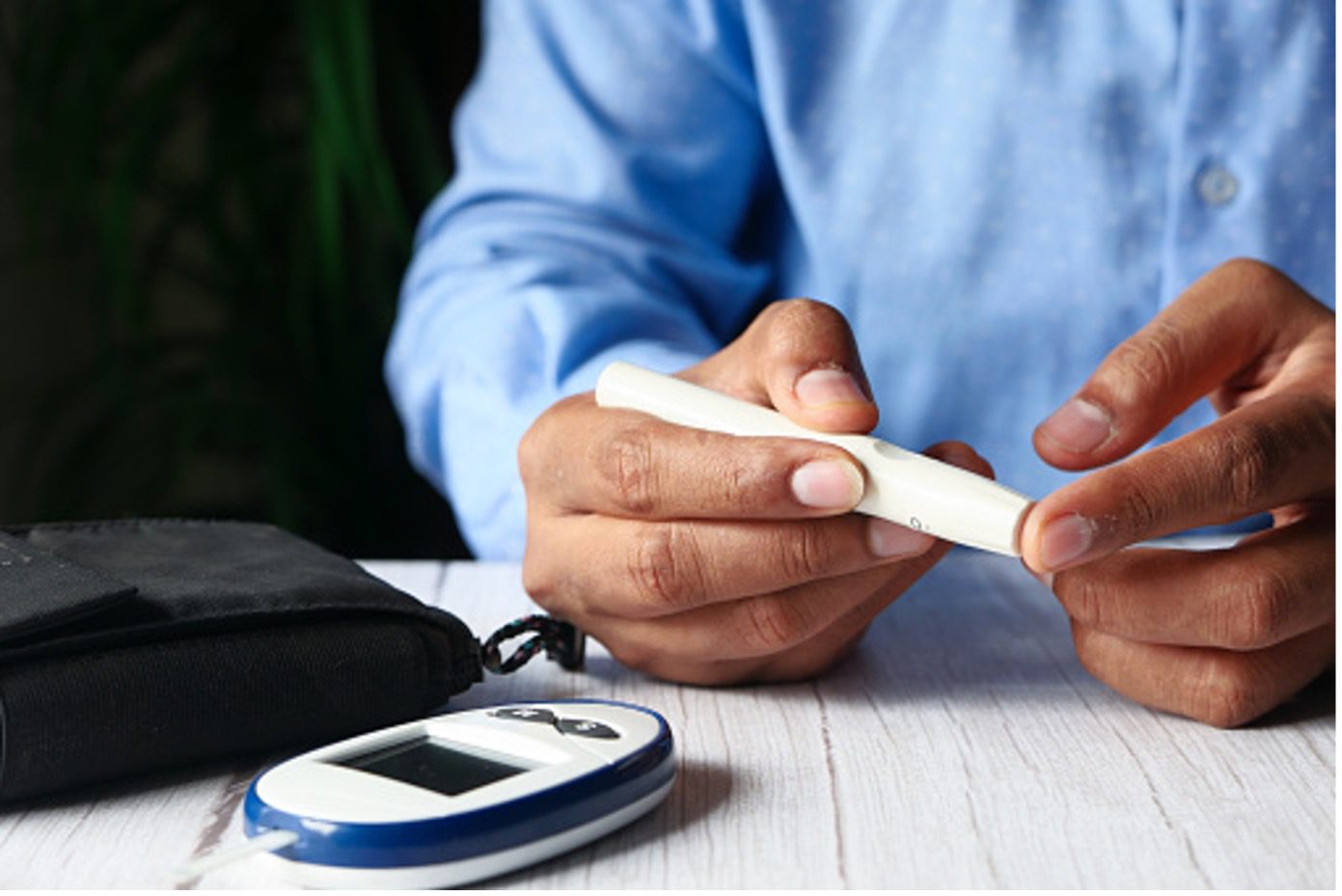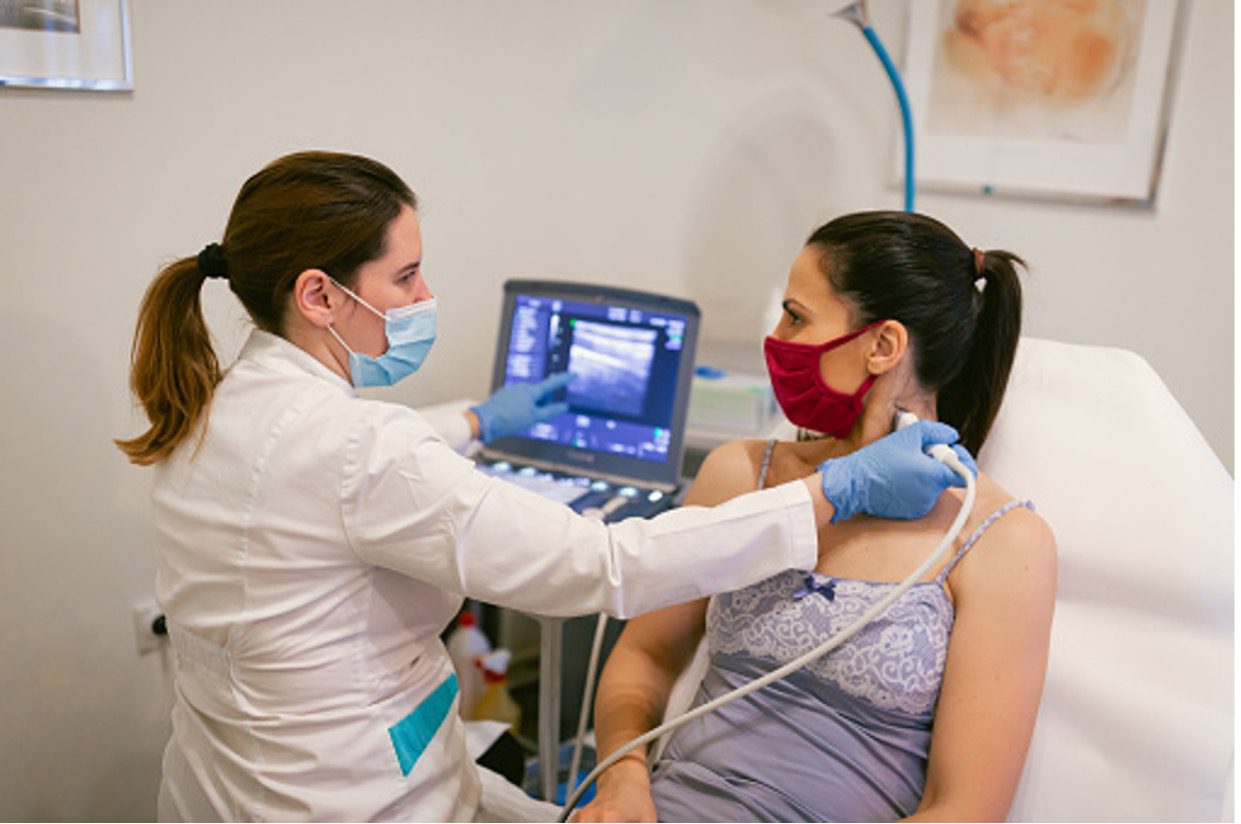St. Joseph Hospital is a regional leader in treating diabetes and thyroid disease.
By: Michelle Martin, for St. Joseph Hospital
People who have Type 1 diabetes are at a higher risk of developing thyroid disease. And while there’s no clear connection between Type 2 diabetes and thyroid disease, treating diabetes can be more challenging for those who have a thyroid condition.
Getting the proper diagnosis and treatment for diabetes or thyroid disease is important – no matter your age. What’s equally important: choosing the right doctor or hospital.
Discover your hometown choice at St. Joseph Hospital, where its team of professionals are leaders in diabetes and thyroid disease – from diagnosis and treatment to education and management.
Diabetes affects all ages

Diabetes can occur at any age. People who are overweight or have a family history of the disease are at a greater risk of being diagnosed with it.
Seeing a doctor if you are at a higher risk – or if you have any of warning signs of the disease, such as excessive thirst, hunger or urination, unexplained weight loss or blurry vision – is a critical first step in helping to manage it.
“Diabetes is considered a coronary risk equivalent,” said Shellie Hafer, an advanced practice registered nurse with St. Joseph Hospital who holds an Advanced Diabetes Management (ADM) certification. “This means that a person with diabetes has the same cardiac risk as someone who has already had a heart attack or stroke.
“Uncontrolled diabetes can also increase risk for kidney disease, eye damage or nerve damage to the feet or stomach,” she added. “The goal for diabetes management should focus on keeping the person healthy and preventing any organ damage in their lifetime.”
There are two types of diabetes, and each is caused by different things.
Type 1 diabetes is caused by an autoimmune destruction of the beta cells of the pancreas – the same cells that produce insulin. As a result, Type 1 diabetics are prescribed insulin, either by syringe or through a pump. Type 1 diabetes was once known as juvenile diabetes as this chronic disease is typically diagnosed in early childhood to young adulthood.
Type 2 diabetics slowly lose the ability to produce enough insulin as they age. Treatment generally begins with oral medications, but they also can be treated with non-insulin injections or insulin.
“The outcomes for all diabetics are for them to live a healthy life without complications,” Hafer said. “I also encourage patients to check glucose levels to determine how their levels are affected by food, exercise and medications. The more data the person has, the better choices they can make and the better they can control their diabetes.”
St. Joseph Hospital started a focus group to help with diabetes education. Like many areas in the country, the Nashua area is also facing a shortage of diabetic educators and dietitians. St. Joseph Hospital is working to fill that gap by creating online patient education resources to discuss medication, diet and exercise.
The hospital also provides a two-week continuous glucose monitoring evaluation that looks at a patient’s glucose levels, diet, exercise and medication to determine how well glucose levels are controlled and whether medications need adjustment.
“I like to teach my patients that diabetes is their disease to control,” Hafer said. “Each person should know how every medication they take works. Diet and exercise are the cornerstone of good diabetes management.”
Comprehensive thyroid disease treatment

St. Joseph Hospital also is the hometown leader in providing diagnosis and treatment for thyroid disease – and the diagnosis begins with the hospital’s specially trained physicians.
The hospital offers physician-performed thyroid and comprehensive neck ultrasound evaluations – different from many health care systems, including academic institutions, where they are performed by a technician and read by a radiologist. Doctors at St. Joseph Hospital have professional certifications from the American College of Endocrinology in the field of neck ultrasonography.
“The ultrasound is done by a clinical endocrinologist who is specializing in treatment of thyroid conditions,” said Dr. Mikhail Signalov, whose clinical interests included thyroid, adrenal gland and pituitary diseases, as well as thyroid oncology and osteoporosis. “Compared in real time to prior studies, you get the best possible accuracy, and in many cases, it prevents unnecessary invasive test, such as FNA [fine needle aspiration] or surgery.”
Signalov, who earned his Doctor of Osteopathic Medicine degree from Lake Erie College of Osteopathic Medicine, has performed more than 1,200 ultrasounds and over 300 FNAs over the last two years. This includes lymph nodes biopsies and also rare procedures, such as ETOH (ethanol) thyroid cyst ablation, which can save patients from surgery.
Underactive thyroid conditions is usually treated with hormone therapy, while overactive thyroid conditions are treated with medication and occasionally surgery or radioactive thyroid therapy.
“We have a dedicated clinical staff with a patient-centered approach to clinical practice,” he said. “The majority of patients have excellent prognosis and have no issues in daily life.”